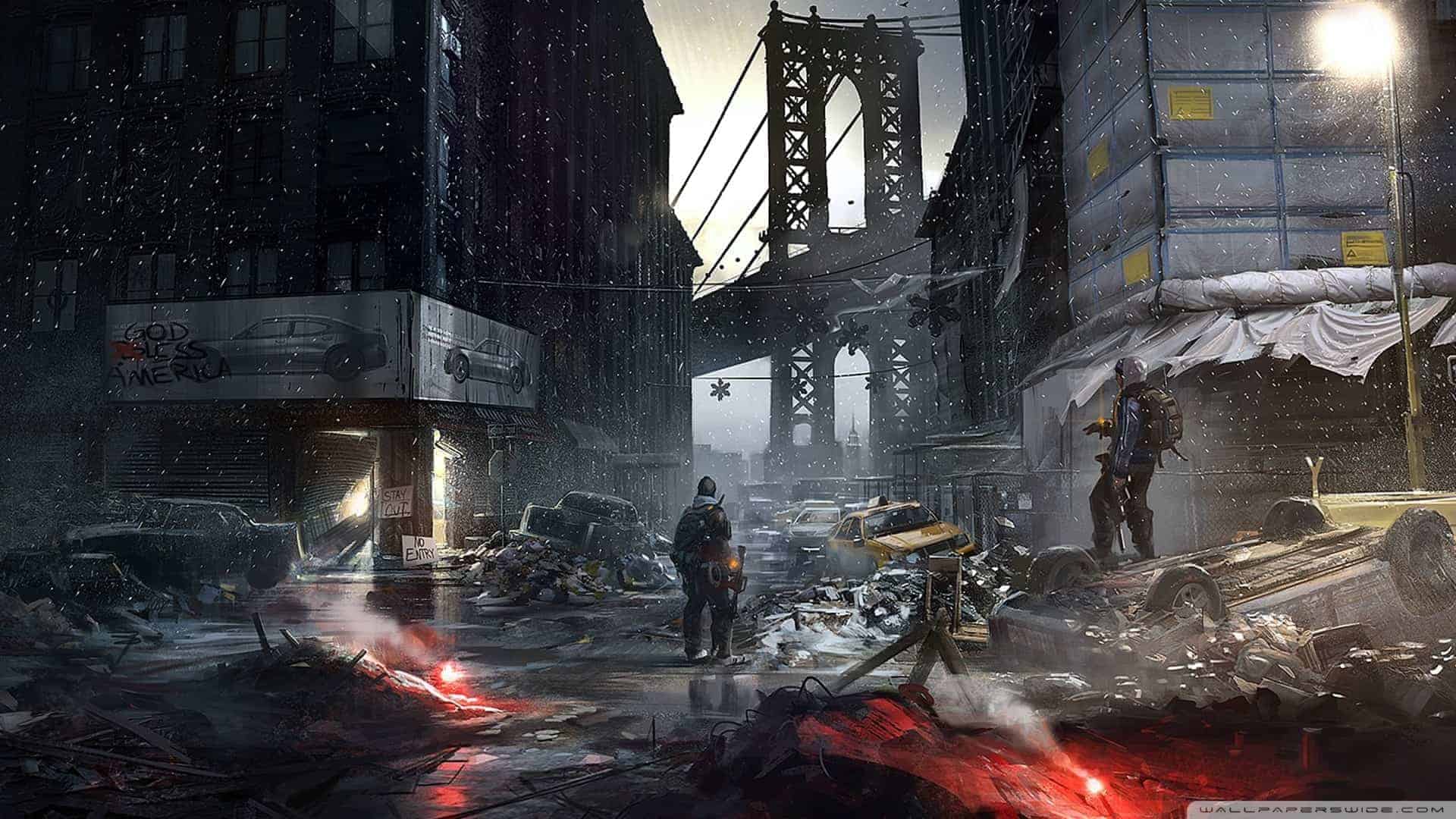The Complete History of Role-Playing Games (RPGs): Part 14 – I Don’t Want to be a Wizard
The humble role-playing game has risen from the tabletop imaginings of Dungeons and Dragons fans to a massive industry that dominates the computer game industry.
Delightful storylines, immersive plots, sympathetic characters and a touch of skill, RPGs have everything a devout gamer needs to provide escapism on a grand scale—but how did they get here and what happened along the way?
Here at Ultimate Gaming Paradise, we know some of the tales.
Episode Fourteen: I Don’t Want to be a Wizard
Dungeons and Dragons was released in 1974. It was the first role-playing game and an immediate success. The setting of… well… dungeons, complete with the fearsome foe of… umm… dragons, gave it an instantly recognisable flavour.
High fantasy was all the rage in the 1970s and 80s. Lord of the Rings held the crown as the king of the genre (and many would argue, it still does), but other titles were being devoured, too; Conan the Barbarian, A Wizard of Earthsea, The Sword of Shannara, Elric of Melnibone, and many more were all lapped up by the enthusiasts of the time. It was a glorious period for fans of swords and sorcery.
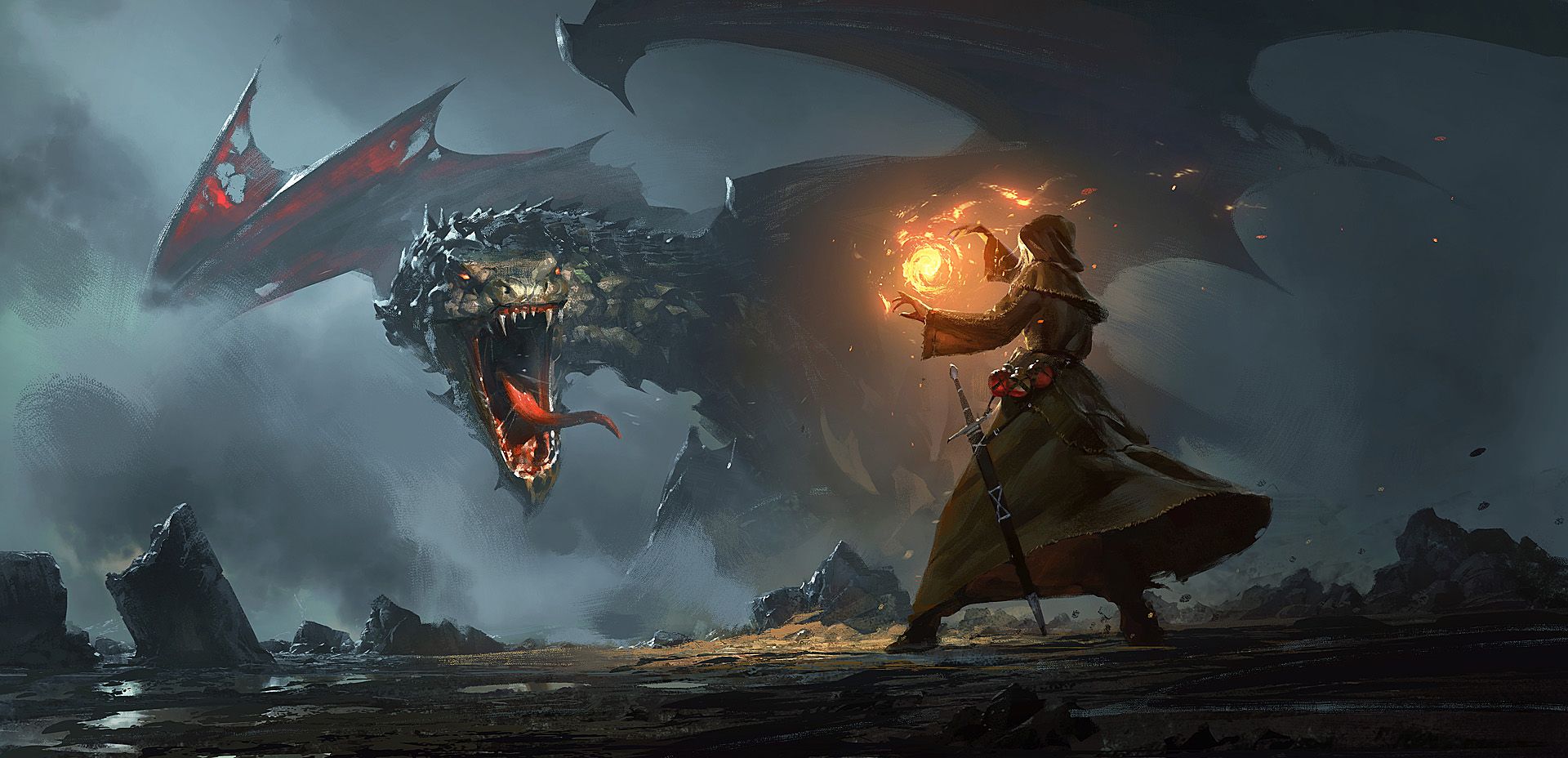
However, not everyone is a fan of swords and sorcery.
When the world of tabletop role-playing games seeped into the computer game arena, it was a surprise to no one that these sweeping epic settings came along for the ride. After all, to many players of the time, role-playing meant magic and dragons, thieves (sorry, rogues) and barbarians, busty maidens and inappropriate lady armour…
Was there anything out there for players who didn’t want to be a wizard?
Metamorphosis Alpha
Coming hot on the heels of Dungeons and Dragons, published by TSR (the people who published D&D) and made by a D&D enthusiast who was personally asked to do so by the high lord of RPGs himself, Gary Gygax, Metamophosis Alpha was the very first non-fantasy role-playing game. It came out in 1976, two years after its predecessor.
It’s not a computer game, it’s a tabletop, dice-rolling behemoth like its sibling, but Metamorphosis Alpha and its later stablemate, Star Frontiers proved the theory that there were players out there keen for a role-playing game that wasn’t all about slashing swords through pseudo-medieval settings. This was sci-fi.
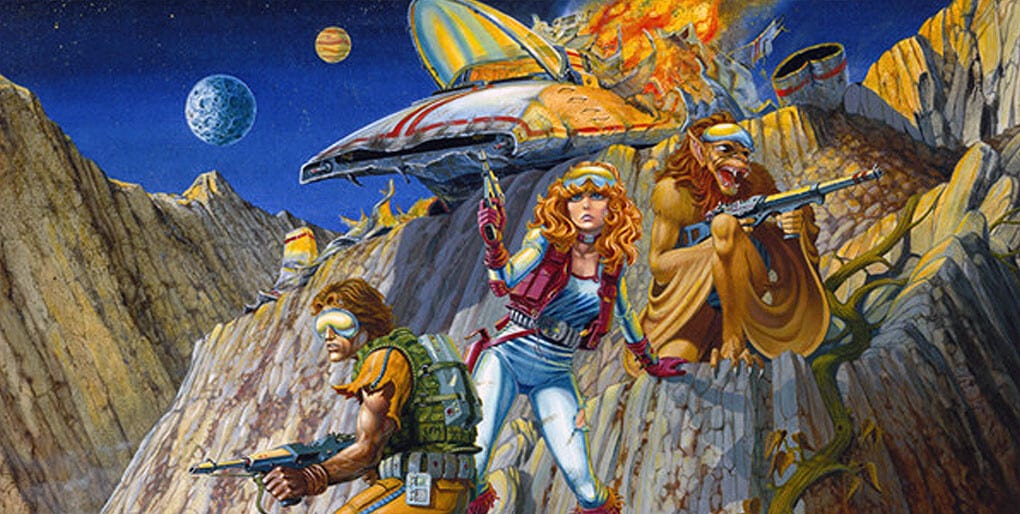
OK, sci-fi isn’t that much of a stretch; the Venn diagram intersection between fantasy enthusiasts and science fiction fans is fairly large, but at least it’s not just wizards, and it pushed open a door.
Early Science Fiction Computer RPGs
One of the first science fiction-based computer games has to be Autoduel. This strange car-based combat RPG was based on Steve Jackson’s Car Wars, a tabletop card-based game from 1980 where players pitted different armoured (and armed) cars against each other. It was actually designed to use actual toy cars as the ‘miniatures’ for the game, to give it that extra burst of flavour—and to give players something to do with their Hot Wheels once they were bored of firing them out of the window on long orange plastic tracks!
Autoduel came out in 1985, written by none other than Ultima’s creator, Richard Garriott. Like many early games, it’s a bit of a stretch to call it an RPG, but all the basic elements are there.
A year later came Starflight on the PC. A party-based space exploration game that was beloved at the time, even if now it seems a bit esoteric. Starflight was considered the inspiration for many games, including the impressive Mass Effect series, decades afterwards.
Popular Games
Though they existed, these early attempts to bring non-fantasy stories to the role-playing arena were thin on the ground.
By 1988, things were moving along, however, and SSI, the company that had the TSR license for official Dungeons and Dragons games, including Pool of Radience, released Star Command. The same year saw Electronic Arts debut both Interplay’s Wasteland, and Karl Buiter’s Sentinel Worlds I: Future Magic. The floodgates for sci-fi role-playing games had finally opened.
Not Fantasy, But Not Sci-Fi Either, Please
Honestly, the chance of someone being an RPG enthusiast but disliking both fantasy and science fiction is very slim. Slim enough that, unsurprisingly, no one was really planning on targeting the demographic for future game development and sales.
Nonetheless, as the years went by, some developers did try, and some very good games came out of the mix.
Mother (1989) and its much more successful internationally-released sequel, Earthbound try very hard to keep away from both fantasy and science fiction. They’re set in America (sort of) rather than either the Elven Plains of Wooblidark, or the Colony on Seguna XII, but with psychic powers and (eventually) a time-travel storyline, the games poke into enough sci-fi as to be generally labelled as such.
Fallout and its sequels are, again, a far cry from the worlds of Tolkien and friends. They are also extremely good. Still, for all the real-world aesthetics, the post-apocalyptic nightmare world you get to explore is a definite science fiction genre.

There’s Wild Arms. This 1996 SNES role-playing game set in a Wild-West-esque world kicked off a series that ran through the lifespan of the PS2. It’s a fun series that does try to shake off some of the flavours of science fiction (despite being heavily based on guns) and fantasy. However, demons, dragons and plenty of other bad guys who wouldn’t look out of place in a Final Fantasy game strike this one from a list of truly non-related-to-fantasy titles.
One of the more successful role-playing games to try to sit outside the fantasy genre is Super Mario RPG and its rather brilliant progeny, peaking with Paper Mario: The Thousand Year Door for the GameCube. A role-playing game set in Mario’s trademark world could definitely be classed as fantasy, but there’s enough uniqueness and established world-building here to almost reject that claim. Thousand Year Door is also really, really, good, and very funny.
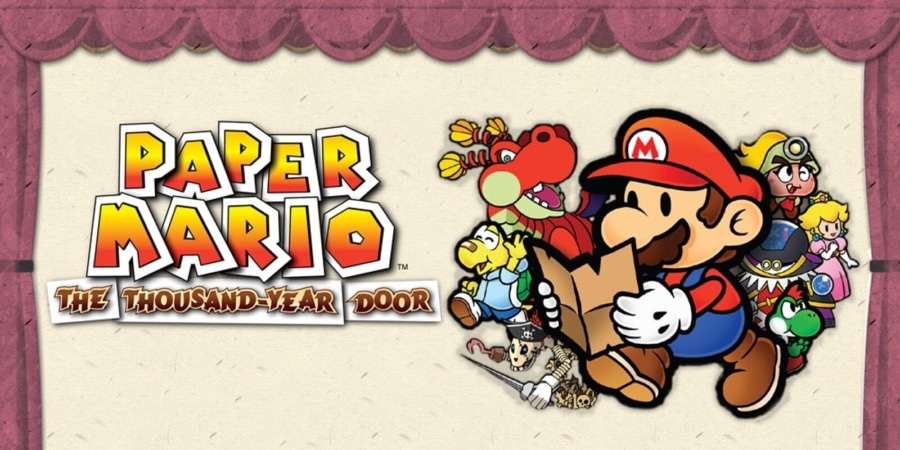
Vampire: The Masquerade – Bloodlines focuses on vampires rather than wizards and dragons. Based on the hugely popular tabletop role-playing game, it’s a beloved title with a lot going for it. The debate about whether or not vampire games count as fantasy is long enough that there’s little room for it here, but we’re going to come down on the side of “yes, vampires, zombies, and their ilk are fantasy,” and so there’s a strike here, too.
Even Disney has infiltrated the RPG arena. The incredibly popular series Kingdom Hearts showed that travelling through classic Disney films, and helping out the characters there, was quite an exciting adventure. Who would have thought it? But despite its fairy tales and cartoon setting, the entire Kingdom Hearts storyline is so filled with fantasy and JRPG tropes that there’s no chance of suggesting it’s not a full-on fantasy fest. It also crosses over with Final Fantasy at regular intervals. Nil points.
Does that leave us with anything?
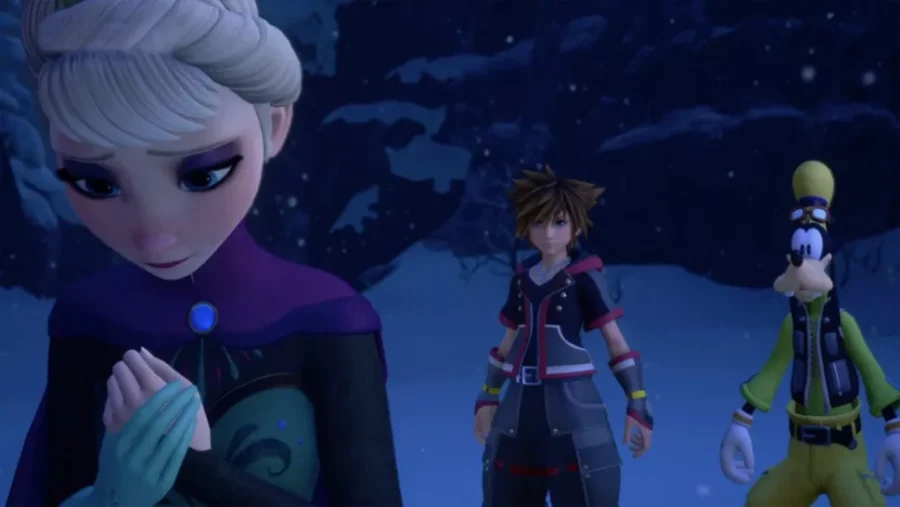
The Intertwining of Fantasy and Role-Playing Games
Is it any surprise that fantasy/science fiction and role-playing games have so closely meshed? While the branching of various ideas and evolutions may mean that there’s a lot that now comes under the umbrella of “RPG”, the core idea is something very simple.
It’s about escapism.
Role-playing is about being someone you are not, doing something you are not able to do. Players don’t roll up wizards or beefy warriors because they are honestly trying to represent themselves in the game environment, they are doing it because they want to play something different.
Role-playing a daily 9-to-5 followed by a trip to the supermarket might be fun the first couple of times, on an “isn’t this unique” basis, but the game itself would get dry very quickly.
Going out into space all tooled up and ready to defeat the alien horde, travelling back in time to hunt dinosaurs, polishing telekinesis powers to fight your way out of the experimental lab, surviving in a radioactive landscape, or hunting down werewolves with a bow and arrow—all of these scenarios exist in a role-playing game out there, and all of them are somebody’s fantasy.
Newest Monitors
Are fantasy and role-playing entwined for some strange, complicated reason? No. They are entwined because they pretty much mean the same thing. Role-playing is a fantasy.
But… but… but…
Real Life Fantasies
No, not the X-rated stuff.
There are some realistic scenarios that most of us cannot hope to experience and these can provide RPG opportunities that may not fall under the science fiction and fantasy labels. How about being a spy?
Alpha Protocol does this well and, unlike Deus Ex which treads some similar ground, does it without stepping into the world of sci-fi. It’s a polarising game, especially if you approach it with a love of first-person shooters which it does visually resemble, but as a role-playing game, it’s actually fairly good and the dialogue system was very impressive for the time.
Another game to tread similar real-world ground is Tom Clancy’s The Division (and its sequel, The Division 2). As an online action title, it doesn’t quite settle perfectly as a role-playing game, but the key elements are all there. Its considerable online community has many players who have come from a first-person shooter background, many of whom struggle with (and dislike) the stat-based RPG elements. Confused by the lack of wizards and dragons, these players argue that The Division isn’t actually a role-playing game—after all, how could it be given that it has a real-world setting?
From The Store
Then, though technically set in a fantasy world, Disco Elysium by ZA/UM in 2019 is another role-playing game that breaks the traditional moulds. With a gritty magic-and-science-fiction-free setting, focus on dialogue and choices over combat, plus an original aesthetic, it may be one of the few RPGs to really try something different. Rather than taking a fighting-oriented starting point as most of the genre tends to do, Disco Elysium is a detective RPG, building from puzzle and storyline without ever needing to delve into mechanics for combat. Perhaps it is this that allows it to stay completely clear of the fantasy elements; after all, if you don’t need the mechanics that seem to dictate the flavour, then maybe that’s what opens you up to trying out other flavours entirely.
Setting is Everything
Any game can be boiled down to a set of mechanics, and role-playing games are especially susceptible.
In one game an effect might be called a “fireball” and is described as a ball of searingly hot flames coming from a wizard’s fingertips, growing in size as it streaks across the field until hitting the demon square in the chest, doing considerable damage. In another, there might be a pulse laser, fired from a coveted MAG7000 series gun, cutting through the air to strike the armoured mech in its central panel, doing considerable damage. A third might describe the psychic power of the mind scream, a terrible telepathic attack that tears the victim’s mind, doing considerable damage.
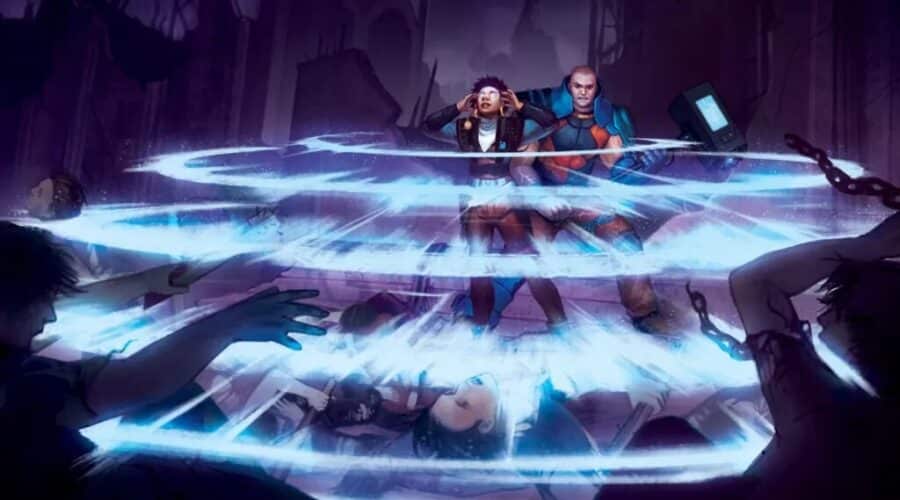
And all of them? An effect that does 5000 damage to an enemy that has 20,000 health.
Numerically speaking, mathematically speaking, there’s no difference between these games.
It’s all in the flavour.
To a fantasy fan, the wizard’s fireball is the perfect interpretation of those numbers; to the person with a love of impressive hardware, the MAG7000 is exactly what she’s been looking for; and the imagery of the mind scream is a perfect draw for the player who enjoys the idea of mind over matter.
Add layers of storyline and some shiny graphics, and the raw numbers are turned into an exciting experience of escapism. So, setting matters. It matters an awful lot.
Thankfully, with almost fifty years of role-playing game history, there’s something out there for everyone. Why not give something different a try?
From The Store
Coming Next…
Games come and games go, but some series stick around. Next time we take a look at the most successful series in role-playing game history. What gives them longevity, what are their high and low points and, if you want to dive in, where should you start?

